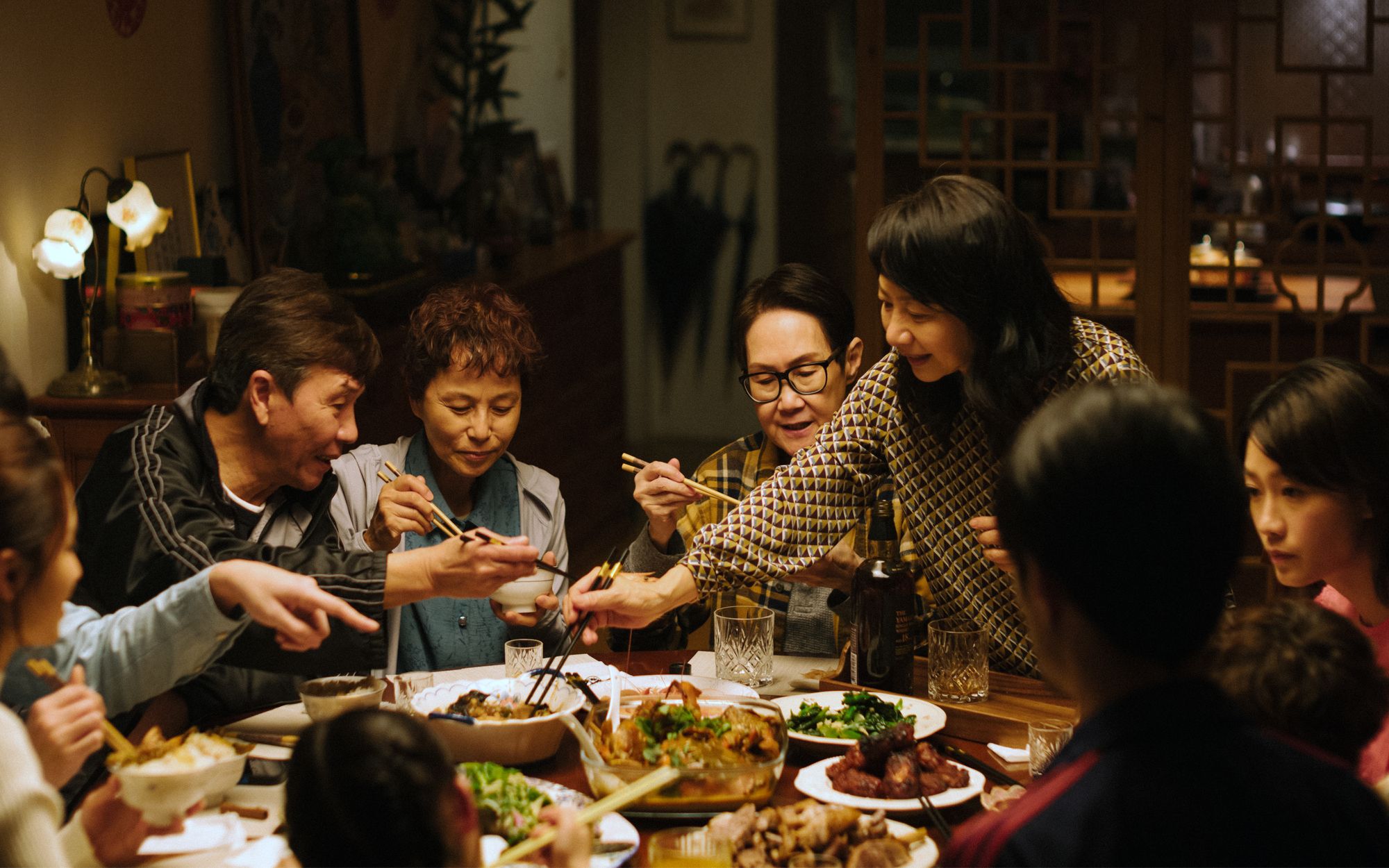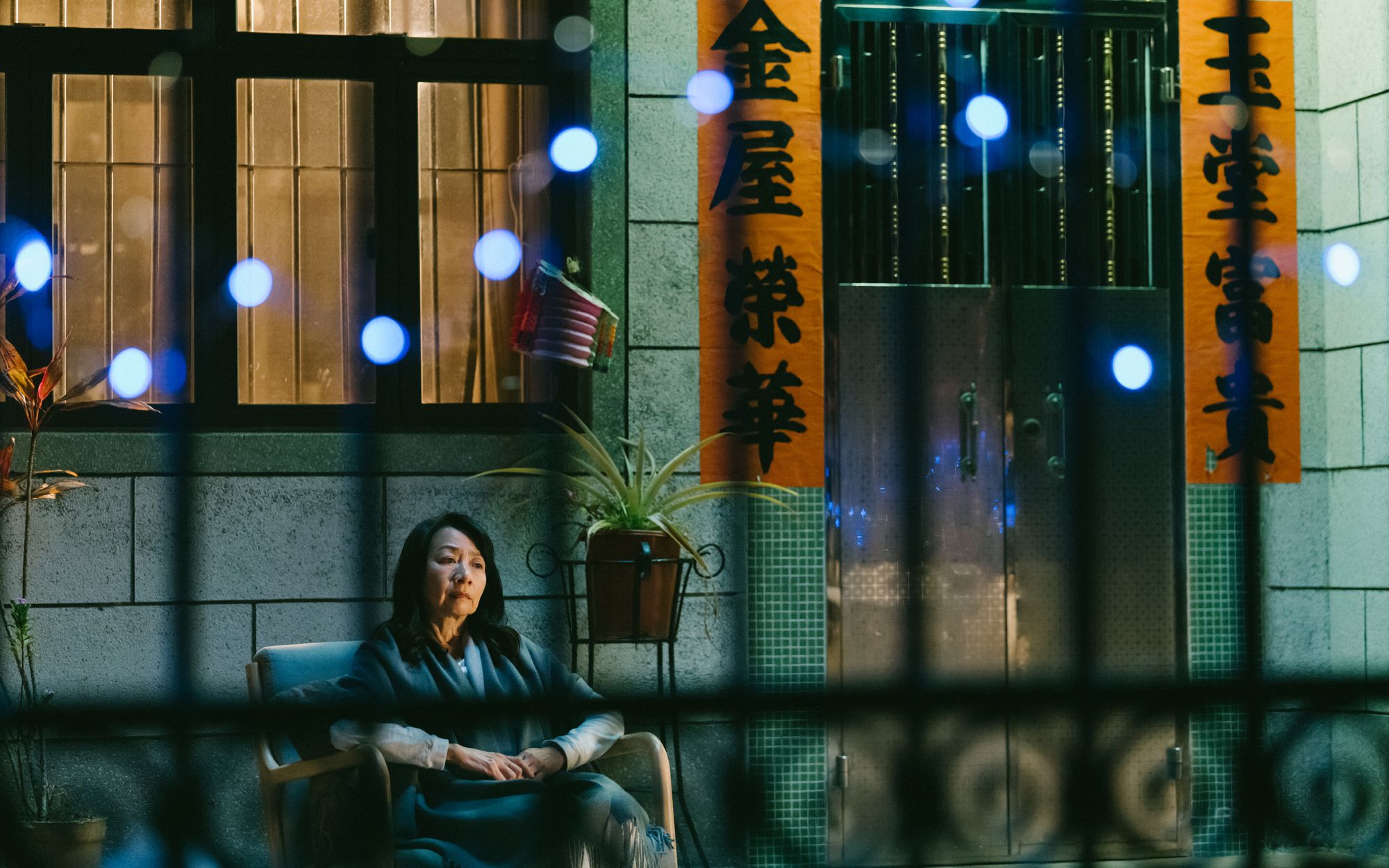All Shall Be Well (Ray Yeung, Hong Kong, 2024)
Recently screened at the London Film Festival October 2024
Review by Khalid Ali, Film and Media correspondent
The opening scenes of All Shall Be Well encapsulate several of the key contributory factors for healthy ageing. Pat (Maggie Li Lin Lin) and Angie (Patra Au Ga Man) are an older female couple in a long-term relationship, both independent and financially secure. We see them shopping for a family gathering to celebrate the mid-Autumn Festival in Hong Kong. The guests at this house party will be all members of Pat’s family, including her brother Shing Wu (Tai Bo), her sister-in-law Mei (Hui So Ying), her nephew Victor (Leung Chung Hang) and Victor’s girlfriend Kitty (Rachel Leung), her niece Fanny (Fish Liew Chi Yu) and Fanny’s husband and two children. Pat has also been planning to launch a fashion business for older women with the label ‘Senior Beauty’.

Pat is considerably wealthier than Angie; she owns the flat they share and can “come to the rescue” in cash-strapped family emergencies. Pat does not begrudge the family sharing her riches and sees that as her duty even when they ask her not to waste money buying them expensive treats. They are one happy family with Victor and Fanny referring to the couple as Auntie Angie and Auntie Pat. However, tragedy strikes when Pat dies unexpectedly. Pat’s brother Shing dominates the scene as her official next-of-kin. Even though Pat and Angie lived together for 30 years, they were not legally married, and the flat was owned by Pat. Angie therefore had no inheritance rights nor was she able to make such personal decisions as how or where Pat’s ashes would be kept. Angie is certain that Pat would have wanted her ashes to be scattered in the sea, but Ching and Mei disagree and want the ashes to be stored in a columbarium. Angie is repeatedly sidelined. The situation reaches a crisis point when she is asked to vacate the flat as it now belongs to Pat’s family with her brother Shing having the sole legal rights to Pat’s inheritance.
In their systematic review describing a framework for ‘healthy ageing’ in contemporary literature, Abud et al list ten determinants including physical activity, diet, self-awareness, outlook/ attitude, life-long learning, faith, social support, financial security, community engagement, and independence.1 The film excels in depicting some of the factors that made this older couple happy before Pat’s death and sustained Angie afterward. They both undertake a fulfilling role in their respective family networks, Pat supporting her family financially and Angie regularly visiting her older parents in their remote village. Their circle of female friends is a source of joy and ‘social connectedness’.
After a brief period of self-neglect and mourning following on from Pat’s death, Angie shows strength of character and resilience by accepting the fact that she cannot continue to protest the decision of Pat’s family regarding where her ashes should be stored. She wisely states: “I am sure Pat would not want us to fight. So, I will step back. We are family, after all”. Angie’s decision echoes the essence of resilience defined by Ploughman et al as “the participant’s ability to adapt to changes, specifically being conscious of the new circumstances they are presented with and choosing to modify their choices to support the new conditions.”2 Angie’s attitude is one of accepting and moving on with life. She wisely acknowledges the need for Pat’s family to claim the flat for themselves; she justifies her position by saying: “if I died as the legal owner of the flat, my parents would have claimed it for themselves”. Her behaviour is one of looking ahead rather than looking back; her intention is to avoid a painful confrontation with Pat’s family in honour of her late partner, and she also aims to continue enjoying a healthy relationship with her late partner’s family.
Another key scene in the film occurs when Pat recalls a traumatic experience as a child being abused by her aunt, Angie asks her to focus on the future and avoid dwelling on the past. She wants both of them to be mindful of their bliss and enjoy the pleasure of the moment. This future-oriented behaviour is underpinned by an attitude that is itself one of the determinants of healthy ageing.3

It is both timely and relevant that the film explores the challenges of old age in Hong Kong as its population of older people is rapidly rising; currently Hong Kong has the longest life expectancy at birth in the world.4 The traditional customs of Chinese family life are as a rule still faithfully observed in Hong Kong, contributing to a culture of ageing that is associated with a caring and productive form of engagement with society.5 Ray Yeung, director and scriptwriter, maintains a nuanced, non-judgemental approach to all his characters, supported by a heartfelt performance from the two female leads, Maggie Li Lin Lin and Patra Au Ga Man
The interplay between the previously mentioned determinants of ‘ageing well’ in an older couple from Hong Kong serves as a moving expression of hope and optimism that growing old can be a time of fulfilment, a time when ‘all can be well’.
References
[1] Abud T, Kounidas G, Martin KR, Werth M, Cooper K, Myint PK. Determinants of healthy ageing: a systematic review of contemporary literature. Aging Clin Exp Res. 2022 Jun;34(6):1215-1223. doi: 10.1007/s40520-021-02049-w. Epub 2022 Feb 8. PMID: 35132578; PMCID: PMC8821855.
[2] Ploughman M, Austin m, Murdoch M et al. Factors influencing healthy aging with multiple sclerosis: a qualitative study. Disabil Rehabil 2011; 34: 26-33.
[3] Amosun S, Harris F. “What next now that you are sixty?” Preliminary exploration of the self-reported aspirations of community-dwelling older persons in the Western Cape Province, South Africa within the active aging framework. Physiother Theory Pract 2018; 36: 791-798.
[4] Chung RY, Marmot M. People in Hong Kong have the highest life expectancy in the world: some possible explanations. NAM Perspectives Commentary, National Academy of Medicine 2020. doi: 10.31478/202001d. eCollection 2020.
[5] Chong AML, Ng SH, Woo J, Kwan AYH. Positive ageing: the views of middle-aged and older adults in Hong Kong. Ageing Soc. 2006: 26: 243-65.
Further Recommended Reading
- https://blogs.bmj.com/medical-humanities/2017/06/06/after-the-storm-liberation-and-hope-in-later-life/
- https://blogs.bmj.com/medical-humanities/2014/12/20/khalid-ali-in-the-shadow-of-guardians-a-review-of-radiator-and-my-old-lady/